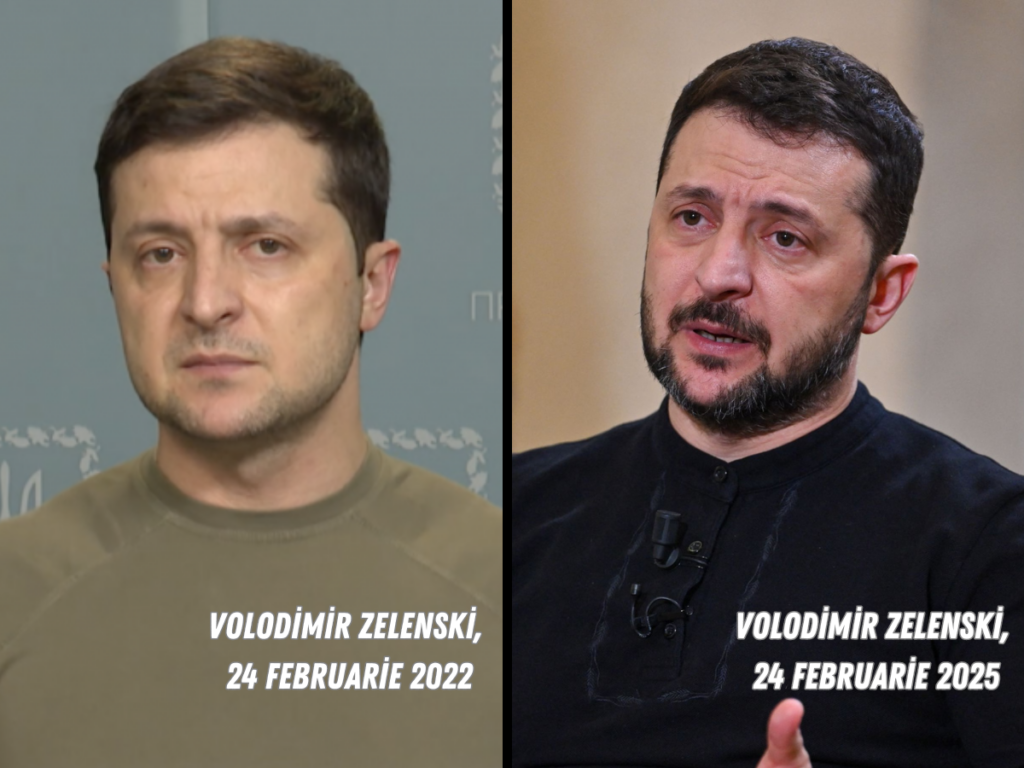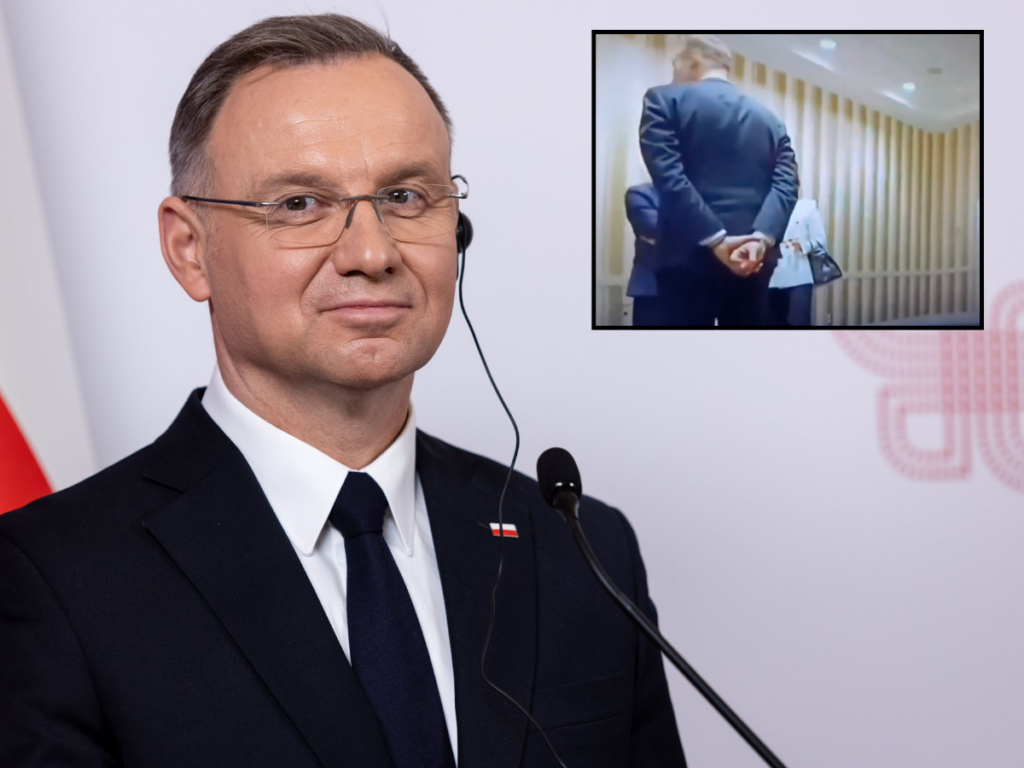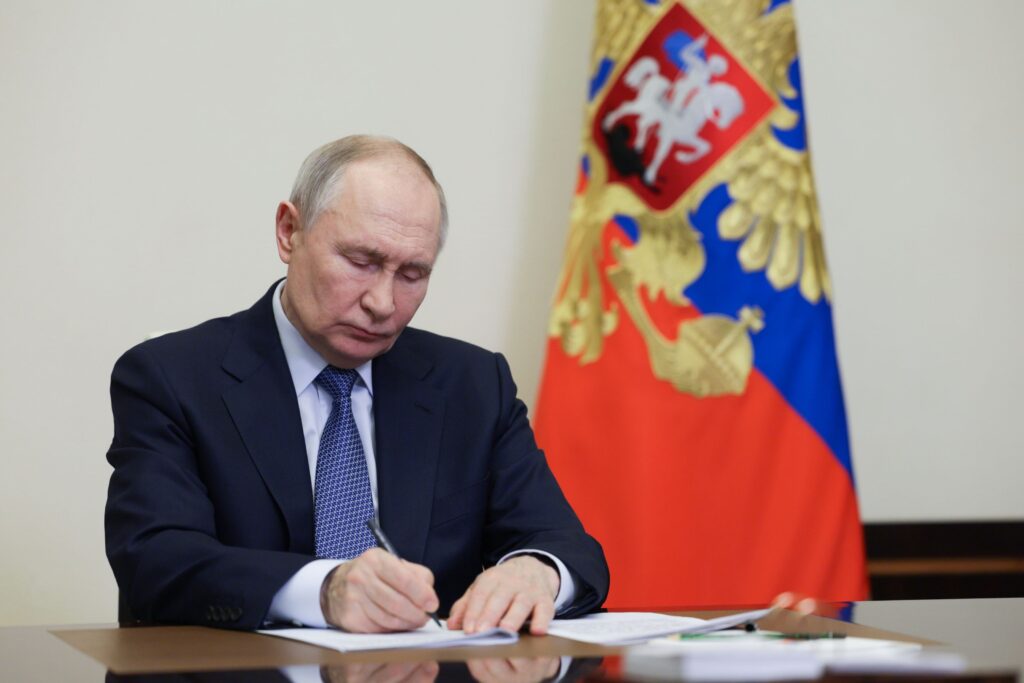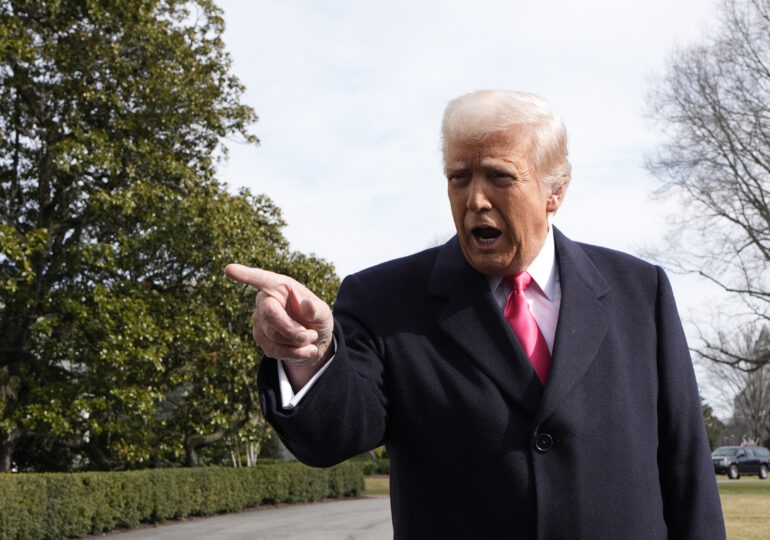Peacemaker and somewhat superior in demeanor, Polish President Andrzej Duda advised Volodymyr Zelensky, on the eve of his departure to Washington, not to react harshly and to have patience in his relationship with the US leader.
„I suggested to President Zelensky to remain committed to a calm and constructive cooperation with Donald Trump,” Duda announced, as quoted by Reuters.
Prior to the meeting between the Polish and American presidents, it was portrayed in the European press as a new success for Warsaw’s diplomacy.
In Romania, a country under the relentless pressure of Trump's associates, who promote the candidacy of Călin Georgescu, supported by the Kremlin, the Polish mission to Washington was viewed with envy.
A day after the American president called Zelensky a "dictator", claiming he was responsible for starting the war and was forced to make a convenient "deal" with Putin so that he wouldn't attack Ukraine anymore, it seemed that Polish diplomacy had found a way to penetrate Donald Trump's mind and soul.

Warsaw's success projected against the course of events and the complete surrender of the new American administration to Putin.
Poland has been and remains one of the biggest supporters of Ukraine in its defense against Russian aggression.
It has welcomed millions of refugees, transferred weapons and money to Kiev, and the country's territory has become the main transport corridor for military aid from the US and Europe to Ukraine.
Andrzej Duda became the President of Poland in 2015, nominated and supported by PiS (Law and Justice Party), now in opposition, a party whose leaders have never hidden their admiration for Donald Trump.
In European chancelleries, the visit of the Polish leader to Washington was closely watched in the context of tensions between Donald Trump and Western leaders.
Therefore, it was a shock when on social media and in the Polish press, information emerged that Andrzej Duda was humiliated at the White House, kept standing for an hour and a half in front of the Oval Office, only to be received by Trump for ten minutes during which, in practice, the two did not discuss anything.

The American leader's gesture was perceived by the Polish public as a sort of punishment for the anti-Russia stance, and Trump's attitude once again showed that the peace he talks about actually means sacrificing Ukraine.
In Warsaw, both sides of the political spectrum are united in their critical stance towards Russia.
The Poles are even more hostile towards the Kremlin than Romanians, with both peoples suffering greatly from Moscow's influence, which has long managed to control both countries.
Trump, Repeated Consultations with Putin
Bucharest, plunged into a deep crisis after the cancellation of the presidential elections, has been isolated internationally in the past two months, becoming a clear victim of Kremlin-led campaigns to change the country's political trajectory.
- Elon Musk's attack on the President of the CCR: This guy is a tyrant, not a judge
- Why is Elon Musk helping Călin Georgescu. A perfect storm is approaching Romania - Interview
- What does Elon Musk want from Romania?
Ilie Bolojan, the interim president, and Emil Hurezeanu, the Foreign Minister, hoped that Duda's success in Washington would be a path that Romania could follow in the near future, but the door was slammed shut by Donald Trump, who decided to align with Russia, at least for now.
The current American president has been in constant contact with Vladimir Putin since his campaign. Several sources have confirmed this to US journalists.

The events following Trump's return to the White House indicate an alignment with the interests of the Russian leader.
Putin's main objective is the removal of Zelensky from power. Only then can the Russian leader claim victory, having "denazified Ukraine" and retained the conquered territories.
Although Russia is exhausted from the war, with 800,000 troops permanently withdrawn from battle, Putin's political survival will be questioned if Zelensky remains in power.
This explains the sudden emphasis on the need for presidential elections in Ukraine by Keith Kellogg, the US Special Envoy for the country.
The topic was immediately picked up by Trump's associates and the president, culminating in labeling Zelensky as a "dictator" at the press conference on February 20.
Putin's Three Essential Demands
A week prior, on February 13, the American president had a lengthy official phone call with Vladimir Putin.
From the statements made after this contact, it became clear that the "peace" promised by Trump is much further away than expected, and Putin's demands are hard to achieve.
I have experience negotiating with the Russian Foreign Minister Lavrov and Putin's advisor Ushakov. What I see now is classic Russian tactics. They offer nothing, demand everything, and wait for the other party to debate, eager to reach an agreement...
Michael McFaul, former US Ambassador to Russia
However, Trump believed he could find a way to fulfill the three minimum conditions demanded by the Russian leader:
- maintaining the occupied territories;
- Ukraine not joining NATO;
- removal of Zelensky from power;
In this regard, Trump's actions should be understood, as the US leader is attempting to undermine European solidarity around Ukraine and tarnish Zelensky's hero image.
The humiliation of Poland by the White House was just the latest cold shower for Europeans who have slowly come to the conclusion that they need to detach from the US and find other ways to support Ukraine and defend against Russia.
Donald Trump had no plan regarding peace in Ukraine. He gambled that once back in the White House, his influence would be so great, at least in the first part of his term, that he could "impose" peace, forcing Zelensky to give in to Kremlin demands.
Trump is also not a great strategic thinker, relying on consultants who are loyal to him and generally tell him what he wants to hear.
Trap for Zelensky
Now, a sort of absolutism reigns at the White House, and opposing opinions are rejected, blamed, and followed by negative consequences for those who express them.
So Trump's peace is nothing but a "business" vision, one that disregards context and the fragmented and often surprising reactions of Europe.
Trump uses the "contract with Ukraine's mineral reserves" to lure Zelensky into a trap.
Once he signs such a document, the political regime in Kiev would be subjected to a suffocating propaganda campaign by Russia, accusing Zelensky of selling the country's riches without bringing peace.
The campaign aims to undermine Zelenski's popularity and trigger a major political crisis in Ukraine.
Such a contract can only be signed if Kiev receives security guarantees from the US, something the White House has so far avoided providing.
Peace in Ukraine is still far away, and Trump's relationship with Russia has become even more problematic for the American political system and for Europe, as in the first term of the American president when he survived two impeachment attempts caused by his special relationship with Putin.

